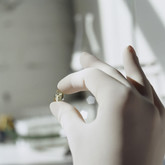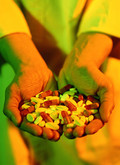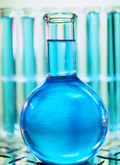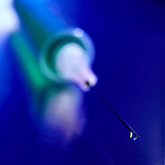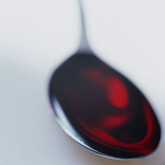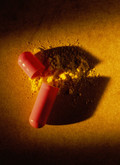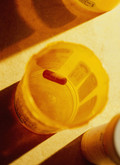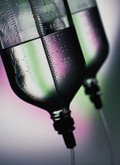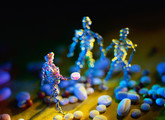Biosimilars
Japanese firms developing biosimilars
Japanese firms are definitely not dragging their heels when it comes to biosimilars. The latest agreement for biosimilar development involves LG Life Sciences (LGLS) and Mochida Pharmaceutical (Mochida), while joint venture Fujifilm Kyowa Kirin Biologics has announced it is to initiate development of a biosimilar version of bevacizumab.
Biosimilar terminology confusion
Imprecise usage of the term biosimilar in the literature is an issue that has already been highlighted by EMA [1].
Glossary of key terms
Last update: 9 June 2017
Confusion may sometimes surround terms used in the fields of generics and biosimilars. This has been recognized as a problem by EMA, who has expressed the need to propose a more precise definition for biosimilars due to problems arising from imprecise usage of the terms in the scientific literature and elsewhere [1].
Reliance Life Sciences starts ‘similar’ infliximab trial in India
Reliance Life Sciences is starting a clinical trial for a ‘similar biologic’ version of infliximab in patients suffering with rheumatoid arthritis in India.
STC Biologics receives US$2.5 million for biosimilar mAb development
US-based biotechnology company STC Biologics announced on 10 October 2012 that it had entered into a US$2.5 million phase II Small Business Innovation Research (SBIR) contract with the National Cancer Institute (NCI) to develop a STC101, a biosimilar monoclonal antibody (mAb), for the treatment of cancer.
Samsung halts biosimilar rituximab development
South Korean electronics giant Samsung has halted clinical development for the biosimilar version (SAIT101) of Roche’s Rituxan/MabThera (rituximab).
Pfizer carrying out biosimilar trastuzumab trial in US
Pharma giant Pfizer is carrying out a phase I trial in the US for a biosimilar version of trastuzumab.
Biosimilars applications under review by EMA
Last update: 11 January 2013
EMA is the body responsible for approval of biosimilars within the EU. A legal framework for approving biosimilars was established in 2003. Approval of biosimilars is based on an abbreviated registration process, which allows biosimilars manufacturers to provide a reduced package of information compared to originator drugs, provided they can prove ‘similarity’ to the originator or ‘reference drug’.
Medicago and Cellectis in successful biosimilars research collaboration
Canadian biopharmaceutical company Medicago and Cellectis plant sciences, a subsidiary of Cellectis SA, French genome engineering specialist, announced on 4 October 2012 the successful completion of the first step in their research collaboration to improve therapeutic proteins produced in tobacco plants.
Overview of research on biosimilarity/comparability and interchangeability of biosimilars 2012
Period: January to August 2012
After the patent on a biological medicine expires ‘similar’ versions of the originator biological can be produced. These biosimilars or ‘similar biological medicinal products’ are similar (but not identical) in terms of quality, safety and efficacy to an authorised reference biological medicine.
